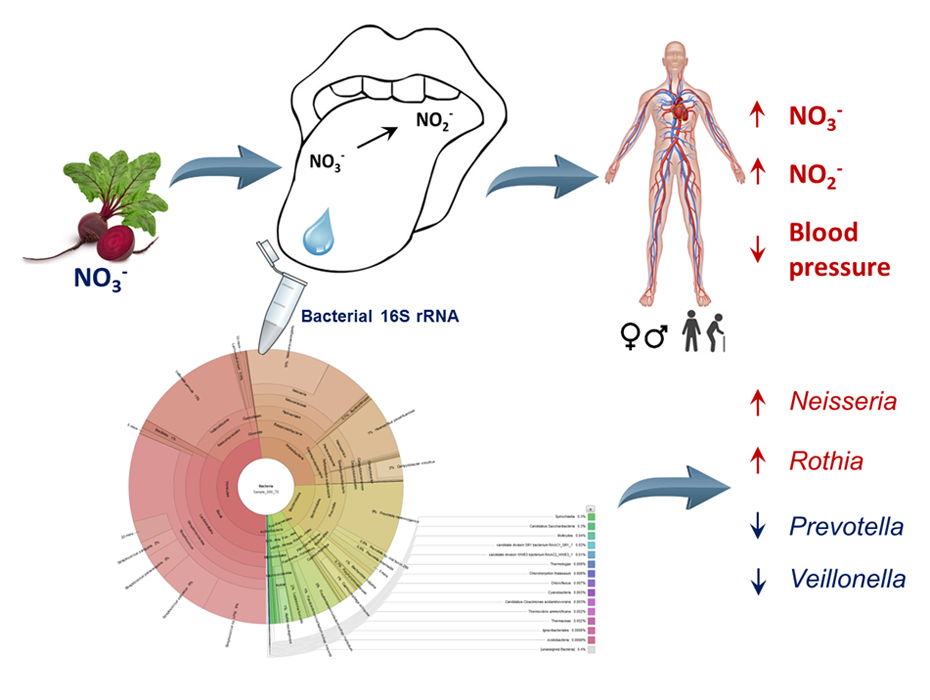The tongue microbiome, nitric oxide bioavailability and cardiovascular health across the human lifespan
Imbalances in the oral microbial community, and poor dental health, have been associated with impaired cardiovascular health, but the role of the oral microbiota as a potential modulator of human health is not well understood.
One mechanism that may link the oral microbiota to good health is the nitrate-nitrite-nitric oxide (NO) reduction pathway. This, for its first step, crucially relies on the reduction of nitrate, which has been ingested through the diet, to nitrite by bacteria residing in the mouth. Among many other physiological roles, NO regulates vascular endothelial function, and therefore blood pressure (BP).
In the UK, at least 25% of adults and more than 50% of people over 60 years old have elevated BP and this is considered a significant cause of premature morbidity and mortality.
Epidemiological studies indicate that a greater consumption of high nitrate foodstuffs (specifically, green leafy vegetables and some fruits, such as in the 'Mediterranean' or '5 a day' diets) may protect against adverse cardiovascular events, and it is known that dietary nitrate supplementation significantly reduces BP in both young and older adults.
Differences between individuals in the ability to reduce nitrate to nitrite and in the effects on BP indicate that the benefits derived from a high nitrate diet may be contingent on individuals having the 'right' oral microbiota.
The outcomes of our current research, funded by the BBSRC and industrial partners DuPont Nutrition & Health, may ultimately lead to the development of prebiotic and/or probiotic interventions that help to maintain NO homeostasis and cardiovascular health across the human lifespan.
Related publications
Funding
This research is funded by BBSRC (Biotechnology and Biological Sciences Research Council) and DuPont Nutrition & Health




